Since then, individual and collective mentalities have evolved! There is now a wide consensus about the relationship between work and health, including mental health. Today, employees are increasingly trained in solutions to care for their health at work. Companies have taken the topic to heart, to the point of integrating notions of wellness into the very core values that define their identity. As part of the Humans in Motion event, Véronique Poli – Learning & Development Manager of the Orange Group – will do us the honor of speaking about the dynamics of large companies and the training programs on mental health that have been implemented at Orange.
Training has also evolved to improve mental health! Today, two trends in mental health training are emerging. The first trend concerns programs on self-knowledge and the power to act, popularized by the “well-being” and “personal development” approaches. Among the main themes addressed in these training programs are self-esteem, letting go, emotional management, memory management, the ability to adopt different postures, and the ability to transmit knowledge from one generation to the next. The objective of these trainings is to provide learners with methods to feel effective and act in a way that is adapted to their individual abilities and the characteristics of their environment.
The second trend is programs on managing mental workload in the workplace. The objective of these trainings is to provide methods and tools to stimulate cognitive capacities in an optimal way and to succeed in regulating mental workload.
The first trend of training on self-awareness and power to act is historical and pragmatic. These programs have been a tremendous help in dealing with the often thorny issues of mental health in the workplace. They have achieved 3 goals:
First, these training programs have raised awareness about the difficult topics of workplace mental health. For example, not so long ago, the topic of burnout seemed very obscure and uncomfortable. Today, the majority of employees are concerned about this topic, either personally or out of altruistic concern for their colleagues. Beyond popularizing this subject, these training programs allow us to deploy tools to detect the symptoms of burnout in work situations as early as possible.
Secondly, these training programs have enabled employees to co-create an emotional repository within companies – i.e., a shared understanding of their emotions. This is because employees have little to no opportunity to talk to each other about these topics in their daily work activities. Through these training sessions, they share their emotions about work situations. Not only do these sessions facilitate empathy among employees, but they also strengthen the sense of social belonging.
Finally, these training programs offer methods to apply in one’s professional and private life to help one feel more effective. The objective is pivotal: offering employees solutions to shine in the different spheres of professional and private life.
For example, Humans Matter has developed a mini-program on “Letting go and self-esteem” for Orange Employees to learn methods to manage emotions and increase self-confidence, as well as methods to be used at the individual and collective level in work situations.
Beyond self-awareness and power to act, the second trend of workplace mental health training is focused on solutions to regulate employee mental workload and increase efficiency. The scope of the problem of mental workload applies to all spheres of professional and private life, including the professions and the ergonomics of training.
The problem of mental workload is especially known in the field of work performance. The more jobs require changing work habits, performing complex tasks, and juggling multiple projects and demands, the more mental workload is likely to increase and saturate. When mental workload saturates at the collective level, a barrage of negative and conflicting emotions can poison relationships and job performance. Management training programs provide methods to help manage mental workload in work situations, both at the individual and group level.
The problem of mental workload is also at the heart of training programs in their ergonomics and learning situations. By attending training programs in parallel with work activities, employees multiply activities that require time and energy. By multiplying their activities, their mental workload may increase to the point of saturation. This translates into difficulties in concentrating in training, memorizing new knowledge, and sometimes even demotivation, to the point of abandoning training programs. All training programs, including job-oriented training programs, can address the problem of mental workload from the design of training programs to the facilitation of sessions by integrating scientific advances in cognitive and science and psychology.
In this perspective, neuro-pedagogy provides designers with techniques to help learners regulate their mental workload during training. Neuro-pedagogy is at the crossroads of advances in cognitive neuroscience and pedagogical engineering. Neuro-pedagogical solutions take the form of techniques and tools that can be applied directly to training design. These neuro-pedagogical techniques consist of stimulating the cognitive abilities of learners during training in an optimal manner. By stimulating cognitive abilities, training designers help learners to better sustain their attention, memorize knowledge, and stay engaged in the training courses. Thus, these solutions help learners to capitalize on these learning opportunities, while regulating their mental workload.
In short, pedagogical and cognitive innovations are applied from the design of training programs and are deployed in work situations to help employees regulate their mental workload and take care of their mental health.
At Humans Matter, we have developed a set of training programs to develop the power to act and to help regulate mental workload:
- In the personal development field, you will find the following self-awareness and power to act training:
- letting go and self-esteem;
- developing one’s posture to be effective;
- the potential and limits of one’s memory;
- transmission between generations.
- In the management field, find our training courses on:
- Manager coach
- Manager curriculum.
- In the commercial field, we offer training on:
- powerful pitches
- the strategy of mutual gains in negotiation.
- Finally, in the educational field, we offer neuro-pedagogy courses to
- optimize the cognitive ergonomics of training content and courses.














